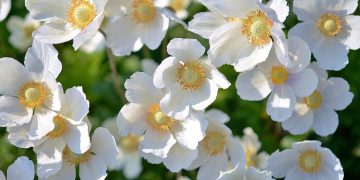Effective Strategies for Organic Plant Pest Management
Organic gardening emphasizes growing healthy plants with the least possible disruption to the ecosystem. Properly managing pests while adhering to organic principles can be challenging but is essential for a thriving garden. This article explores actionable strategies for managing pests organically, ensuring that your plants stay healthy without resorting to synthetic chemicals.
Understanding Organic Pest Management
Organic pest management involves using natural methods and products to control pest populations in a garden or farm. These practices not only help maintain ecological balance but also promote biodiversity, soil health, and the reduction of pollution.
Key Principles of Organic Pest Management
- Prevention: Prioritizing preventive measures to avoid significant pest outbreaks.
- Mitigation: Implementing techniques to reduce the damage caused by pests.
- Control: Employing natural remedies and biological controls to manage pest populations.
Preventive Strategies in Organic Pest Management
Prevention is the cornerstone of effective pest management in organic farming. Several approaches can be taken to ensure that pests do not become a significant problem.
Choosing the Right Plants
Selecting disease-resistant varieties and native species can drastically reduce the vulnerability of your garden to pest infestations. Research and choose plants that are known to perform well in your local climate and soil conditions.
Encouraging Natural Predators
One of the most effective organic pest management strategies is to encourage natural predators in your garden. Ladybirds, lacewings, and predatory wasps are some beneficial insects that feed on common garden pests. Creating a habitat that attracts these predators can help keep pest populations in check.
Maintaining Healthy Soil
Healthy soil is the foundation of a healthy plant. By enhancing your soil with organic matter, maintaining proper pH levels, and ensuring adequate drainage and aeration, you can boost your plants’ natural defenses against pests.
Eco-Friendly Pest Control Methods
When preventive measures are not enough to keep pests at bay, organic gardeners can turn to a variety of eco-friendly pest control methods.
Physical Barriers and Traps
Physical barriers such as row covers or netting can effectively protect plants from insects and birds. Similarly, traps and sticky boards can help reduce pest populations by capturing and removing adults before they have a chance to reproduce.
Botanical Insecticides and Natural Pesticides
There are several natural products that can be used as part of an organic pest control strategy. Neem oil, diatomaceous earth, and insecticidal soaps are effective against a wide range of pests and are generally safe for the environment when used correctly.
Homemade Organic Sprays
Homemade remedies, such as garlic or chili pepper sprays, can deter pests without harming your plants. These solutions are easy to prepare and can be a cost-effective way to manage pests in small gardens.
Monitoring and Adjusting Strategies
Regular monitoring of your garden is crucial for early detection of pest issues. Carefully inspect your plants for signs of stress or damage and identify any pests that may be present. By catching problems early, you can address them before they escalate.
Record Keeping
Keeping detailed records of pest outbreaks, control measures, and plant performance can help you refine your pest management strategies over time. This data will allow you to predict potential problems and adjust your tactics accordingly.
Common Questions About Organic Pest Management
What Are the Benefits of Organic Pest Management?
Using organic methods for pest control can enhance biodiversity, improve soil health, and reduce chemical runoffs, thereby promoting a healthier ecosystem overall.
Are Organic Pesticides Always Safe?
While generally safer than synthetic pesticides, organic pesticides can still be harmful if misused. It is essential to follow application guidelines and use these products judiciously.
Can Organic Farming Completely Eliminate Pest Problems?
No method of pest management can completely eliminate pests. However, organic farming seeks to manage pest populations to levels that do not cause significant harm to plants.
Conclusion
Effective organic pest management is a multifaceted approach that requires understanding the ecological balance of your garden. By using preventive measures, encouraging natural predators, and applying eco-friendly control methods, gardeners can protect their plants from pests in a way that also protects the environment. Remember to monitor your garden regularly and adjust your strategies as needed to maintain a happy and healthy garden.























































